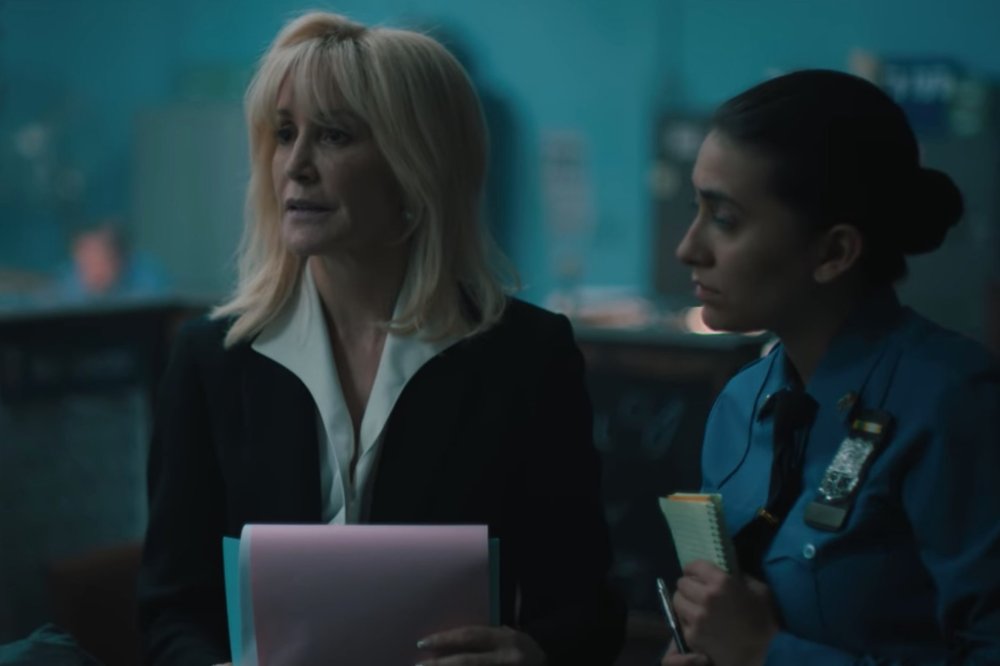On a fateful night on April 19, 1989, a white female jogger named Trisha Meili was found raped and murdered in the North Woods area of New York’s Central Park. Right about the same time, a group of black teenagers, including a hispanic, were arrested in Central Park on charges of assault, robbery and riot. All of the boys hailed from Harlem, a predominantly black neighbourhood having a colourful, close-knit community. By the time the crime was reported, the police already had the five boys in custody and had started interrogating them about the ghastly murder about which they had no inkling of. Once the media got involved, the case became widely publicised painting the 14-year-olds in a less than favourable picture. All this despite the police having no material evidence of any involvement from the alleged suspects.
With the pressure mounting, the police decided to obtain “confessions” from them using techniques that were frowned upon even in their own rule-books. The kids were beaten, yelled upon, and questioned for hours on end without food, water, or even a restroom break. Using the oft-used “good cop, bad cop” routine, the seasoned interrogators used their insecurities and fear against them, and got them to “confess” on tape on the promise that they would be allowed to go home if they did what they were told. Little did they know that they would not be returning home for almost 15 years.

Ava Duvernay’s limited series adaptation of the infamous “Central Park Jogger case” tells the story of the Central Park Five – Antron McCray, Kevin Richardson, Raymond Santana Jr., Yusef Salam and Korey Wise – whose lives were turned upside down that night. The four-part series delves into how the case was prejudiced from the very outset, and how despite all odds in their favour legally, they were found guilty of a crime they had not committed. Being a vocal proponent of Black rights herself, Duvernay’s portrayal isn’t just a mechanical narrative of the events but an unfettered portrayal of how life in the community is disrupted and ripped apart by the case. Families become outcasts as they are associated with “criminals” or “rapists”. The narrative then shifts to their incarceration where everyone except Korey Wise is sent off to Juvenile Homes. Korey, who had turned 16 the year before, was tried as an adult and as a result was sentenced to a much more brutal punishment in an adult prison. Even after their respective releases, life doesn’t become any easier as they have to register themselves as ‘sex offenders’ and still have to go out into a working-class society to find jobs to support their families. Anywhere they went, their maligned reputation followed them. Their lives had been effectively destroyed.
Even though we can only imagine the physical and mental trauma they had been subjected to, Duvernay’s gut-wrenching portrayal makes you furious at the sheer injustice that had been metted out. In all of this, Duvernay still manages to strike a balance by not demeaning the very act of the crime itself. In an extremely powerful scene, we watch Trisha Meili, the victim, walk up to the witness stand and describe how her body felt. When asked about that night, she quietly says that she doesn’t remember what happened to her or who did it to her. With such an emotional plea that the State lawyers used, it is not surprising that the jury ruled in their favour. The only culprits to come out of this, therefore, would be the police who were not only prejudiced but committed perjury by coercing false confessions out of teenagers.
When asked about that night, she quietly says that she doesn’t remember what happened to her or who did it to her. With such an emotional plea that the State lawyers used, it is not surprising that the jury ruled in their favour. The only culprits to come out of this, therefore, would be the police who were not only prejudiced but committed perjury by coercing false confessions out of teenagers.
When They See Us gives us some of the best performances I have seen in recent times. The immensely talened Vera Farmiga as the State Lawyer fights for Trisha Meili despite having reservations against the veracity of the case against the boys. Her demeanour in court is extremely authentic as she tries to rip apart the defense’s case. The real winners of the adaptation, however, are the young actors who play the teenage versions of the Central Park Five – Asante Blackk as Kevin Richardson, Caleel Harris as Antron McCray, Ethan Herisse as Yusef Salaam, Jharrel Jerome as Korey Wise, and Marquis Rodriguez as Raymond Santana Jr. Every single one of them brings their own personality into each of the characters as their innocent selves are trapped into an “act” conjured up by the police department. The pain they show on screen and their internal struggle with coming to terms of their incarceration, feels very real.
The story of the Central Park Five is a compelling account in itself. It is reminiscent of Harper Lee’s idea of a 60s America in her seminal work To Kill A Mockingbird and how relevant it still is in Trump’s America. Duvernay, who is the first black Golden Globe and Oscar-nominated female director for her 2014 film Selma (which was nominated for Best Picture), provides a powerful social commentary that cuts through the racist undertones and hatred that still simmers in America in its various political guises. The title When They See Us aims to ask a question, perhaps, if American Society would ever see the coloured community as a part of their culture; or maybe its a hopeful rhetoric that justice would prevail when they are accepted and treated as equals.
gobblscore: 8.5/10